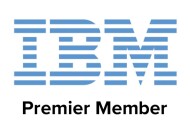As AI adoption permeates across all industries, so does the imperative to integrate AI ethics. Customers, employees, and shareholders not only expect companies to use technology responsibly, they demand it.
The IBM Institute for Business Value first explored how corporations are implementing AI ethics in a 2018 survey. This report follows up on the topic. We partnered with Oxford Economics in 2021 to survey 1,200 executives across 16 business and technology roles in 22 countries. Additionally, a separate 2021 survey polled more than 14,000 consumers, citizens, and employees for their perspectives on the subject.
Most respondents recognize the significance of trustworthy AI. 85% of consumers say that it is important for organizations to factor in ethics as they use AI to tackle society’s problems. Similarly, 75% of executives rank AI ethics as important in 2021—increasing from less than 50% of respondents in 2018.
Many organizations have taken steps to embed AI ethics into existing business guidelines. But consumers, citizens, and employees indicate more needs to be done. Only 40% of those surveyed trust companies to be responsible and ethical in their use of new technologies such as AI—a similar percentage to 2018.
And despite their efforts to date, even corporate leadership knows that significant work remains. Fewer than 20% of executives strongly agree that their organizations’ practices and actions on AI ethics match (or exceed) their stated principles and values. These results confirm and quantify what the World Economic Forum (WEF) calls the “intention-action” gap.
Organizations face a stark choice. They can rely on impending regulations and hope the spotlight on ethical issues dims over time—a risky alternative. Or they can distinguish themselves by confronting ethical issues strategically, purposefully, and thoughtfully.
Next steps for advancing trustworthy AI
The resources are ready and waiting for organizations to use as they launch their AI ethics initiatives. The field of AI ethics—initially explored in cross-disciplinary research settings—offers many constructive frameworks, assets, and associations. Choosing the appropriate tools depends on where an organization is in its AI journey and who is taking the actions.
Read this report to go deeper on the state of AI ethics implementation and to read an extensive guide of practical, role-specific steps organizational leaders can take to advance adoption of AI ethics.
For any questions or requests contact your IBM Representative today.








